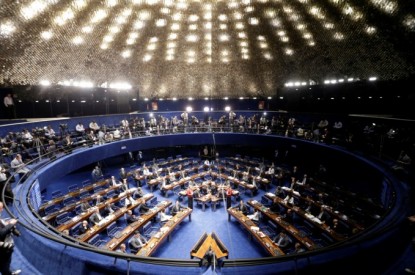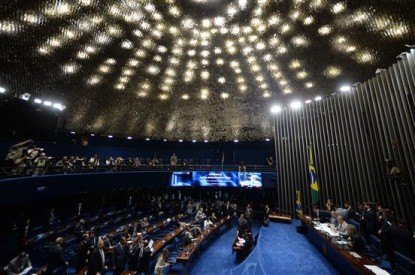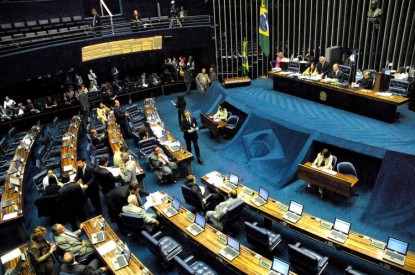Legislation
Brazil – Sports betting bill approved in senate
By James - 13 December 2023
The Senate Plenary approved the basic text of the bill that regulates sports betting (PL 3.626/2023), from the Executive Branch. As the bill was modified in the Senate, the text will return to the Chamber of Deputies for analysis. The bill still has to pass the lower house before being signed into law. The proposal imposes 12% revenue tax for online betting companies and 15% on the winnings paid to gamblers.
With 37 votes in favour and 27 against, the senators included an amendment by Carlos Portinho excluding online casino games from the bill. An amendment by Senator Tereza Cristina was also accepted (with 45 votes in favour and 23 against), which excludes the installation of physical machines from the project.
By 36 votes in favour and 25 against, the senators decided to allow for the advertising of betting in sports arenas and the sponsorships for athletes — an amendment that prohibited these practices had been presented by Senator Eduardo Girão.
The version of the bill approved with amendments was put forward by the rapporteur of the bill in the senate Senator Angelo Coronel.
In order to offer sports betting the operator will require authorization by the Ministry of Finance, with licenses valid for up to five years and they will be able to operate three brands. Legal entities must meet several requirements. These include: having a domiciled presence in the country, having at least one member of the group with proven knowledge and experience in games, betting or lotteries, and they must meet certain technical and cyber security requirements as well. The licensing procedure will be processed online.
The bill also sets out other requirements: online platforms must clearly display data such as the number and date of publication of the license, the physical address of its headquarters, contact details for customer service and ombudsman. The use of facial recognition technology to identify the identity of bettors was also included in the text.
Communication and advertising actions for betting, carried out by the operator, must include warnings over gambling related harm, while operators will need to observing restrictions on broadcast times and channels. Advertising that presents gambling as socially attractive or contains statements from well-known personalities that suggest that gambling contributes to social or personal success will be prohibited. Operators will also be required to feature actions to mitigate match-fixing and corruption in live events, with bets proven to be made through match-fixing and corruption being void.
In November Senator Angelo Coronel the rapporteur of the sports betting bill in the Committee on Economic Affairs (CAE) in the senate presented his official report on the sports betting bill. In his text Angelo Coronel admitted some amendments presented by members of the CAE, as well as some of the changes introduced in the proposal by the Sports Commission (CEsp). In his report on the bill sent to the Senate from the lower chamber Senator Coronel reduced the federal tax rate on GGR from 18% to 12%.
The congressman also reduced taxation on player winnings. In addition the rapporteur increased the duration of licences from three to five years. He also proposed that each licensed company would be able to run three instead of just one online betting platform. License fees remained unchanged at R$30 million.
Brazil’s lower house approved the online sports betting bill in September. The bill was then sent to the Senate. The legislative process in Brazil means that a bill can originate in either house. Once passed it goes to the other house where it can be rejected, approved or amended and then returned to the “Originating House.” It is then forwarded for the presidential sanction or veto.




